Faces From the Frontline
Essential workers from every corner of our state, in the face of a deadly and mystifying pandemic, continued performing their crucial roles to keep our communities functioning and safe
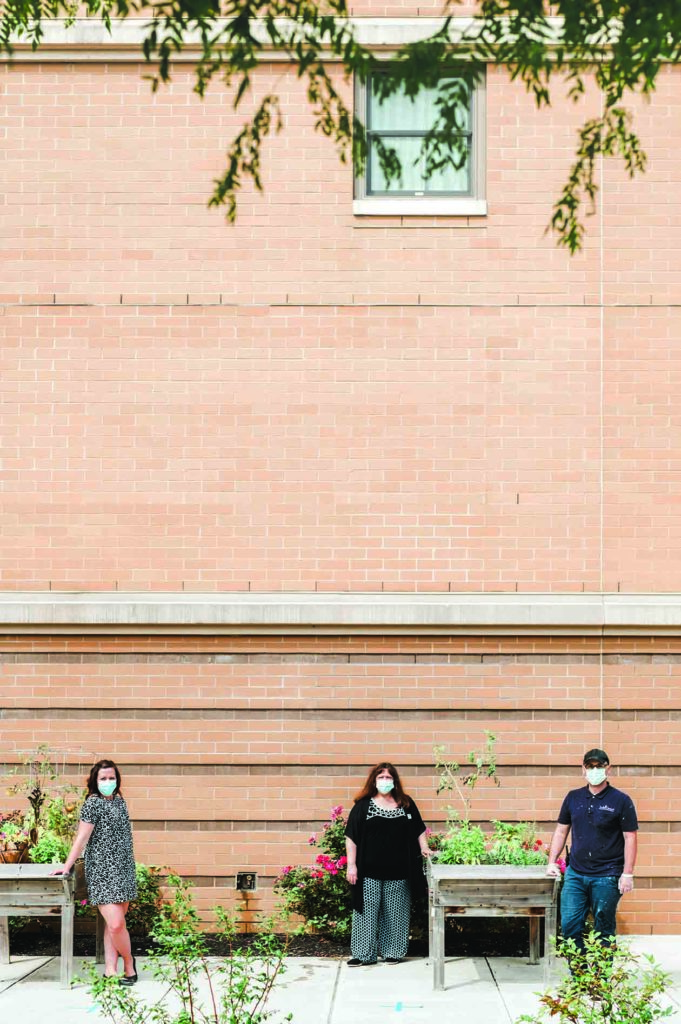
Faces From the Frontline
Essential workers from every corner of our state, in the face of a deadly and mystifying pandemic, continued performing their crucial roles to keep our communities functioning and safe
by Paul Koenig, Alexandra Polkinghorn + Emma Simard
Photography by Christina Wnek
Issue: October 2020
This March scores of Mainers rapidly shifted to working from home while sheltering in place to prevent the spread of the novel coronavirus, COVID-19. But there were many for whom that was not an option. Essential workers from every corner of our state, in the face of a deadly and mystifying pandemic, continued performing their crucial roles to keep our communities functioning and safe. This month we are taking a moment to recognize these everyday heroes—our neighbors who never missed a beat when called upon to help. We interviewed those working in fields such as healthcare and social services, and transportation and education, but there are so many brave employees whose vital work deserves recognition. Thank you for everything that you’re doing for Maine and its citizens; we are in your debt.
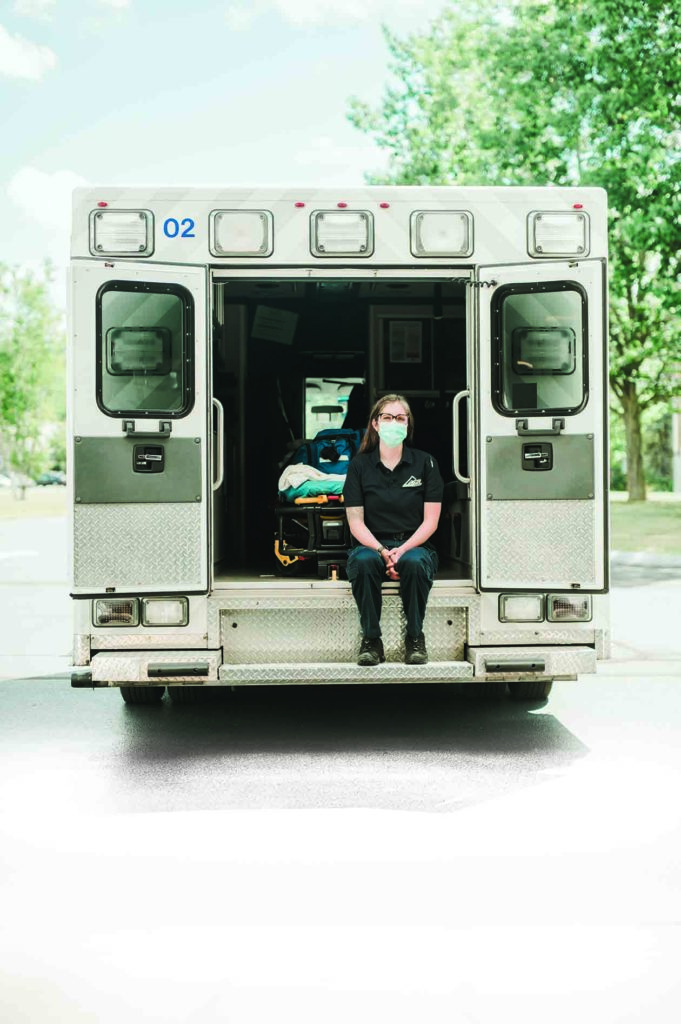
Jessica Dorgai, paramedic
Delta Ambulance, Waterville
“It’s more stressful, knowing we’re dealing with this stuff and not knowing how long until one of us at work gets sick. In the beginning, when everything shut down, our jobs were both harder and easier. We had a lot more stress going on and a lot more things to do, but there was less traffic. People were kind of scared to go to the ER, so our call volume was lighter. A lot of people were delaying care because they were scared to go to the hospital or some people weren’t getting routine visit’s to the doctor’s office. There came a point after a couple of months when we got really busy with a lot of really sick people. It’s hard to see people out and about doing all of this stuff or taking a lot of chances with their health and knowing it could potentially make my job a lot harder down the road. We’ve been really lucky in Maine that we haven’t had a huge outbreak like other places. Before, I was going to work and there were situations that could be dangerous about my job and I always knew that, but now there’s a little bit more of a risk going to work.”
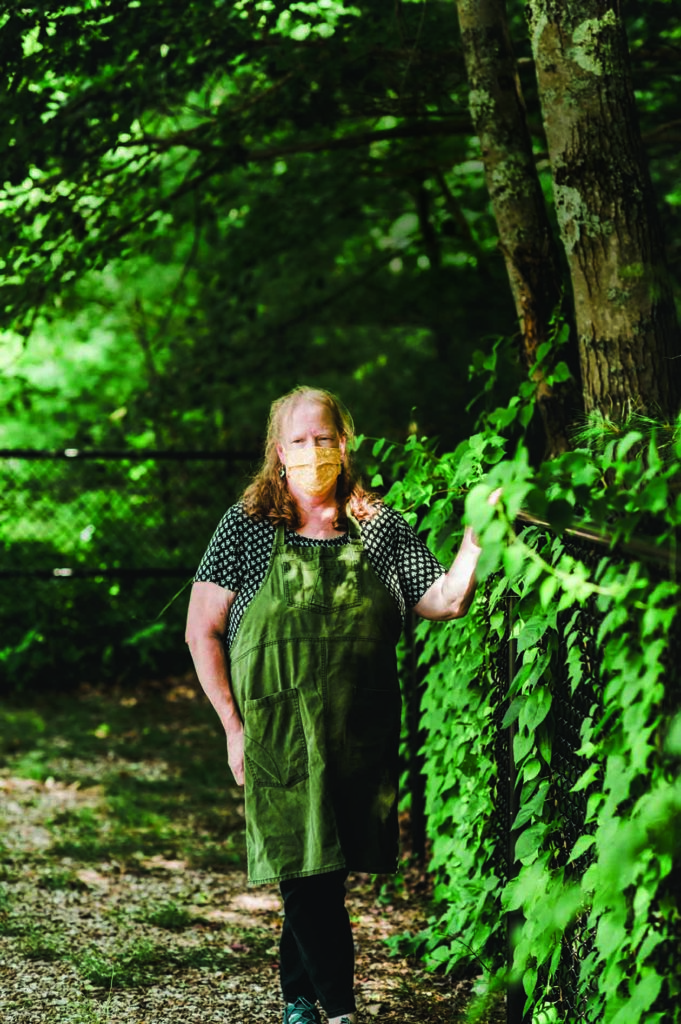
Kathy Cochrane, preschool teacher
Midcoast Maine Community Action Head Start
“It was really scary because it happened so fast. We had to put a plan in place to continue the curriculum, so we set up video areas in our houses and recorded ourselves reading for the kids. It was very foreign and frustrating at first, but we got into a groove and made it work. I tried to make it fun and more interactive, so for example, when we were on the garden unit, I would go and record myself reading at the farmers’ market or on a farm. For our ocean unit, I went down to Harpswell, sat on a dock with a lobster boat behind me, and read a story about boats. But the hardest part was not having any interaction with the kids—I miss their little faces in front of me and their interactions and their comments. We’re planning to reopen in September with CDC and DOE guidelines in place, and we want to keep everybody safe. It’s just going to be a whole different year we’re facing.”
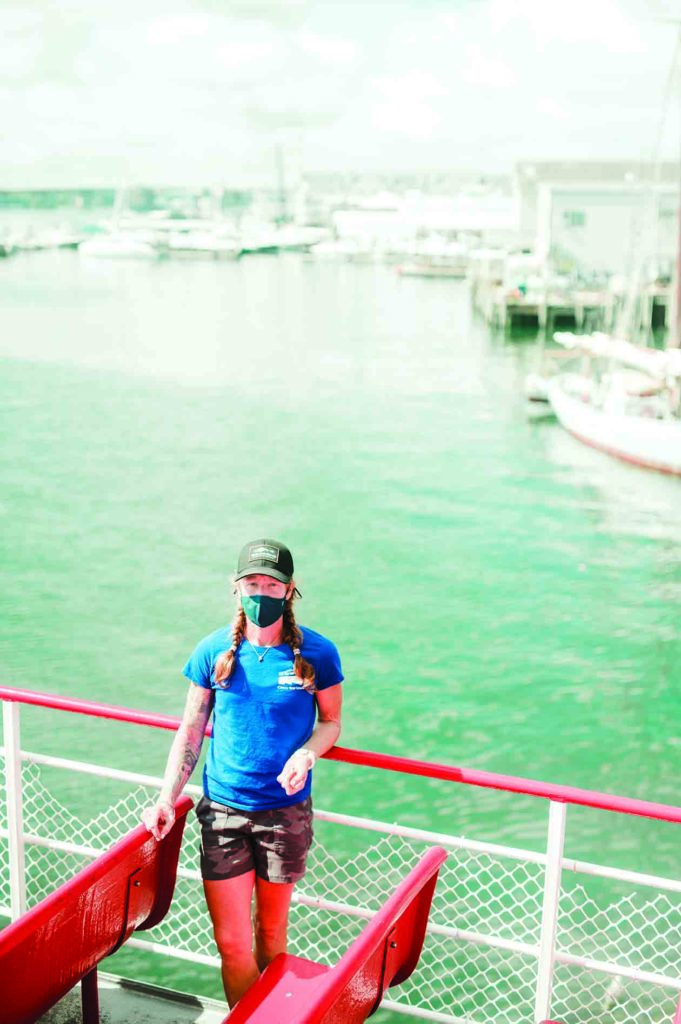
Gretchen Frank, deckhand
Casco Bay Lines, Portland
“As the lifeline to the island communities we serve, we run 365 days a year. Those of us who work on the boats are used to operating through challenging weather conditions. We know many of our regular passengers well and recognize that they depend on us for access to the mainland. Obviously, we’ve never seen anything quite like this, but we have continued to operate daily throughout COVID-19. There have been ongoing changes to our operations to protect our customers and our team. Our schedules were changed to allow for the crew to operate in isolated teams to reduce the risk of the entire company needing to be quarantined. For me, this has meant much longer days when my crew is on duty. Casco Bay Lines has also asked customers to take steps to help us keep everyone safe. While it certainly looked different here this summer, all crew and shoreside workers have stepped up, and we’ve continued to provide safe and reliable service by working together.”
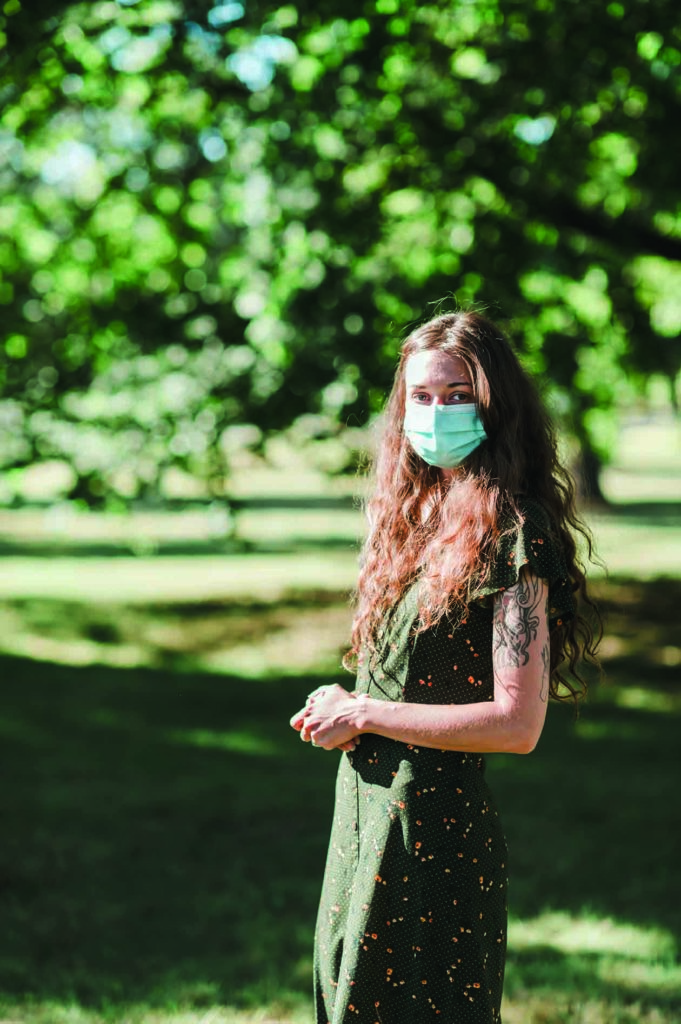
Maria Vargas, residential support worker
Shalom House, Portland
“We’re sanitizing absolutely everything, and we had to explain the situation to our residents, how dangerous the virus is. It’s our job to help them understand that they need to not only protect themselves, but they also have to protect everybody who lives in the house with them, the people who work there, and anyone they interact with. There are also things like in-person training for medication administration that have changed significantly. Training classes were halved or quartered to maintain social distancing, so not as many people can get their training done at the same time. We are so dependent on being able to do these trainings in person—you can’t learn how to take someone’s blood pressure or check vital signs through a workbook—and not being able to teach as many employees at once will likely have a long-term impact on our staffing.”

Maine Access Immigrant Network, Portland
“The pandemic has been really difficult for new refugees and asylum seekers. One client who I’ve been working with for two years doesn’t have any of the online programs that many of us are using and doesn’t know how to read or speak English. He is living by himself and doesn’t have anybody from his culture nearby. I have been visiting with him every week outside the building where he is living, showing him what’s going on outside. I’m there trying to make sure he knows things like how to use his mask and how to wash his hands, which is different from normal days. Coming to this country, we’ve been in their shoes. We’re here to help people who are in our position, at one point in our lives.” —Sanaa Abduljabbar
From left: Sanaa Abduljabbar and Sana Osman
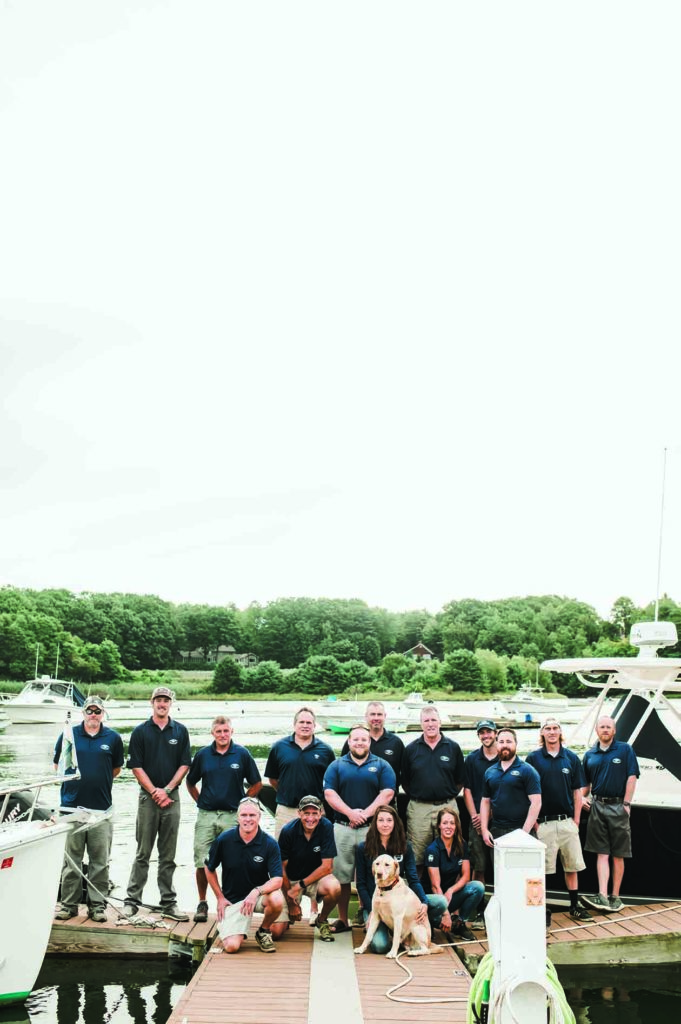
Yarmouth Boat Yard
“Every year we service game warden boats, Falmouth and Yarmouth police patrol boats, harbormaster vessels, Sea Tow boats, water taxis, and more. When the quarantine shutdowns happened in early March, we quickly reached out to the state to request essential certification so we could continue prepping these boats so they could be ready when needed. It was granted, and our crew didn’t miss a beat. They’ve been working long hours and overtime to meet the overwhelming demand to keep boats up and running.”
—Steve Arnold, owner
Front row, from left, Tim Raymond, Scott McCatherin, Tara Nean, and Sonya Corbett.
Back row, from left, Justin Rowe, Will White, Bart Snyder, Steve Arnold, Jon Paul, Josh Taggart, Dana Jensen, Andrew Dobson, Tyler Baril, David Howard, and Captain Ryan Coffin.

Town Landing Market, Falmouth
“I am a sole proprietor, so when it came time to need plexiglass for our counter, I went to Home Depot and bought duct tape and put the plexiglass up with duct tape. One of our patrons—a really wonderful person who lives around the corner—saw the dividers and built beautiful plexiglass dividers to put between us and the community and the customers. It was just out of the goodness of his heart that he did that.”
—MaryBeth Bachman, owner
From left, MaryBeth Bachman, Robin Bott Craves, and Robert Paul.

The Park Danforth, Portland
“Working in maintenance during this pandemic has been a particularly challenging experience. Things still required fixing, even when we were sheltering in place. A television not working is an unpleasant inconvenience in normal times, but when you’re voluntarily isolating, that loss of connection becomes a much more serious problem. Particularly in the early going, when the infection landscape was unclear, it was a challenge to respond to maintenance issues in a way that protected both ourselves and the residents. Our interactions became much more important, as we were occasionally among the few people our residents had the chance to speak to face-to-face in a given week. We all realize that, often, that’s as important as fixing something for our residents.”
—James Seavey, maintenance supervisor
From left, Whitney Beck, Anne-Marie Brett, and James Seavey.
Simulation Team, Hannaford Center for Safety, Innovation, and Simulation
at Maine Medical Center, Portland
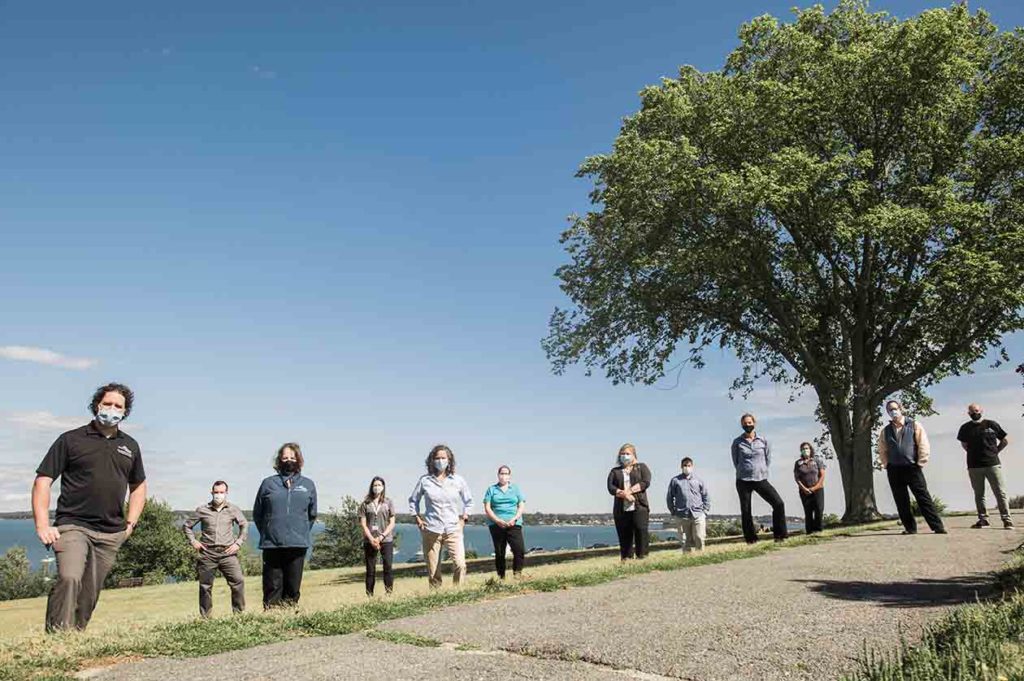
“When the pandemic started, we had to make rapid changes to help patients and protect our fellow healthcare workers at Maine Med. With help from colleagues from across our hospital, our simulation team mobilized to develop, test, and train for new COVID-modified protocols. We worked quickly to change the way we intubate patients, respond to Code Blue cardiac arrests, conduct telemedicine appointments, and take patients safely to the OR. These efforts represented time above and beyond clinical demands and coming to work when others stayed home to make our health system safer for patients and for our coworkers as we continue to fight this pandemic.” —Dr. Leah Mallory, MD
From left, Tyler Johnson, Jeff Holmes MD, Tracie Barbour, Christine Mallar, Susie Lane, Erin Siebers, Bethany Rocheleau, Chris DiLisio, Leah Mallory MD, Shelly Chipman, Mike Shep-herd, and Todd Dadaleares.

